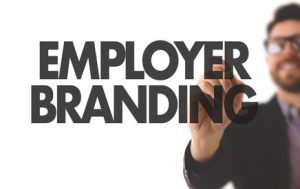
An employee personal brand v the business brand – can they work hand in hand?
An employee personal brand v the business brand – can they work hand in hand?
Most businesses are aware of the considerable benefits of having employees with strong personal brands and this is often now encouraged. While a strong business brand has practical benefits such as improving brand recognition, employing individuals with strong personal brands helps to give your organisation a human touch and can help build trust between your business and customers. As you would expect, people feel more inclined to buy from people with compelling personalities and whom they can trust. For that reason, many businesses are keen to invest further in employees with good online presence and a following or to develop their staff to show their personalities and work towards them becoming “thought leaders and influencers” in the market place.
Other people, from customers, new recruits, and even competitors, get drawn to these individuals because they successfully promote useful knowledge through their platform. The aim for business owners / the Executive Board, is to harness the power of these people’s individual brands and make them advocates for their business.

However, from the business perspective, there becomes a point where an individual’s brand can be perceived as less of an advantage and more of a threat to the business. This can be for a whole host of reasons, such as:
· The individual’s brand could overshadow the business brand, causing people to see the individual as “Rock Star” and the business stays in the shadows & is forgotten
· Employees could be seen as abusing the resources and the platform given to them by their employer, using it for their own personal advantage of self- promotion rather than the business
· The risk that personal branded employees will be head-hunted by competitors or the employee feels they have ‘outgrown’ the role and the business and decides to move on
The external attention that is originally sought, when obtained can cause internal pressures and is likely that there will be some form of conflict. This could be a struggle between employer and employee to assert their dominance – the employer by attempting to squash the employee’s personal brand and controlling how they can present themselves online, the employee resenting and resisting or bad mouthing the employer to key stakeholders and even others.
Ultimately, this is a far worse outcome than the risks initially predicted by the employer. So how can business owners negotiate this situation and still ensure they can harvest the benefits of individual’s personal brands?
The reality is that business owners are better off encouraging it than attempting to suppress it. In a world where our social presence can make or break a career, employees are going to try and develop their personal brand regardless. And when they do have successes, you will want them on your side.

The key is to take a relaxed approach, sometimes easier said than done. It’s all down to relationship at the end of the day and the stronger your relationship the better. Give time, and genuine respect to your employees, and turn them to even greater brand ambassadors who truly respect the business and wants to use their position to see it (and consequently themselves) succeed. As the saying goes “a customer cannot truly love a business until its employees do”, so it is worth valuing this relationship, and that means valuing the fact that their personal brand is important to them. By being associated with this person, as their reputation grows, so does your business.
What do you think? Can employee’s personal brands and the business brand work together for the greater good?
Thank you once again for your time,
Safaraz (Saf)










